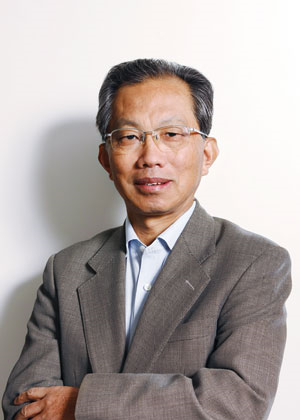Edge computing/distributed cloud offers a much more fluid, real-time environment. It moves applications, data and services away from the central cloud to the edge. The shift to edge computing/distributed cloud has new requirements and offers opportunities for innovation applications. This workshop covers all aspects of network architecture, model, algorithm and protocol for edge computing/distributed cloud applications.

IEEE ICNP 2021 Workshop on Networking for Edge Computing and Distributed Cloud Applications
In conjunction with the 29th IEEE ICNP 2021, Virtual Event, November 2, 2021
Topics
We seek original completed and unpublished work not currently under review by any other journal/magazine/conference. Topics of interest include, but are not limited to:
- Network architecture, model, algorithm, protocol design for edge computing/distributed cloud application
- Ubiquitous convergence of computing, network and storage for edge computing/distributed cloud application
- Deterministic networking technology for edge computing/distributed cloud application
- Information-centric networking, named data networking, content-centric networking for edge computing/distributed cloud application
- Blockchain for edge computing/distributed cloud application
- Software defined networks for edge computing/distributed cloud application
- Machine learning and deep learning enabled edge computing/distributed cloud application
- Automation and optimization for integrated networking, caching and computing
- QoS provisioning and resource management for edge computing/distributed cloud application
- Energy-efficiency for edge computing/distributed cloud application
- Performance evaluation for edge computing/distributed cloud application
- Testbed and prototype implementation for edge computing/distributed cloud application
Paper Submission
The workshop accepts only novel, previously unpublished papers. All final submissions of accepted papers must be written in English with a maximum paper length of six (6) printed pages (10-point font) including figures. No more than one (1) additional printed page (10-point font) may be included in final submissions and the extra page (the 7th page) will incur an over length page charge of USD100. For more information, please see IEEE ICNP 2021 official website.
COMMITTEE

Yunjie Liu
SUBMISSION
Paper submission deadline: |
JUL. 1, 2021 |
Notification of acceptance: |
AUG. 3, 2021 |
Camera-ready papers: |
AUG. 24, 2021 |
Submission link
Policy
IEEE Computer Society Open Conference Statement
Equity, Diversity, and Inclusion are central to the goals of the IEEE Computer Society and all of its conferences. Equity at its heart is about removing barriers, biases, and obstacles that impede equal access and opportunity to succeed. Diversity is fundamentally about valuing human differences and recognizing diverse talents. Inclusion is the active engagement of Diversity and Equity.
A goal of the IEEE Computer Society is to foster an environment in which all individuals are entitled to participate in any IEEE Computer Society activity free of discrimination. For this reason, the IEEE Computer Society is firmly committed to team compositions in all sponsored activities, including but not limited to, technical committees, steering committees, conference organizations, standards committees, and ad hoc committees that display Equity, Diversity, and Inclusion.
IEEE Computer Society meetings, conferences and workshops must provide a welcoming, open and safe environment, that embraces the value of every person, regardless of race, color, sex, sexual orientation, gender identity or expression, age, marital status, religion, national origin, ancestry, or disability. All individuals are entitled to participate in any IEEE Computer Society activity free of discrimination, including harassment based on any of the above factors.
IEEE Event Conduct and Safety Statement
IEEE believes that science, technology, and engineering are fundamental human activities, for which openness, international collaboration, and the free flow of talent and ideas are essential. Its meetings, conferences, and other events seek to enable engaging, thought provoking conversations that support IEEE’s core mission of advancing technology for humanity. Accordingly, IEEE is committed to providing a safe, productive, and welcoming environment to all participants, including staff and vendors, at IEEE-related events.
IEEE has no tolerance for discrimination, harassment, or bullying in any form at IEEE-related events. All participants have the right to pursue shared interests without harassment or discrimination in an environment that supports diversity and inclusion. Participants are expected to adhere to these principles and respect the rights of others.
IEEE seeks to provide a secure environment at its events. Participants should report any behavior inconsistent with the principles outlined here, to on site staff, security or venue personnel, or to eventconduct@ieee.org
Sponsors












